- TOP
- Product lineup
- Activated carbon fiber
Activated carbon fiber

Compared to granular activated carbon, adsorption and desorption speeds of Kynol ACF (Activated Carbon Fiber) are very fast. It has a high level of purity and a large specific surface area that other activated carbons do not have.
Typical characteristics
Typical characteristics of Kynol Activated carbon fiber
| Fiber diameter | 10〜30um |
|---|---|
| Specific Surface Area | 1,000〜2,500m²・g¯¹ |
| Pore diameter | 0.5~1 nm |
| Elongation | 300〜400 N・mm¯² |
|---|---|
| Toluene Adsorption | 30〜80 wt% |
Typical Properties of Activated Carbon Fibers
|
Kynol (GCI) |
Rayon (Standard Type) |
PAN (Standard Type) |
Granules (Coconut shell type) |
|
| Diameter(um) | 10~30 | 15〜20 | 6〜8 | ー |
| Specific Surface Area (m²・g¯¹) | 1,000〜2,500 | 1400 | 900 | 800 |
| Surface area (m²・g¯¹) | 1.0〜1.2 | 0.2〜0.7 | 1.5〜2.0 | 0.001〜0.1 |
| Pore diameter(nm) | 0.5~1 | 0.5~2 | 1~5 | 0.7〜2 |
| Tensile strength (N・mm¯²) | 300〜400 | 50〜100 | 250~350 | ー |
| Modulus (N・mm¯²) | 10,000〜15,000 | ー | 70,000〜80,000 | ー |
| Toluene adsorption (wt%) | 30〜80 | 30〜60 | 20〜45 | 30〜35 |
| Methylene blue adsorption capacity (cm³・g¯¹) | 310〜380 | ー | 100〜150 | 70〜80 |
Specific Surface Area and Tensile Strength of Activated Carbon Fibers(Compared by precursor)
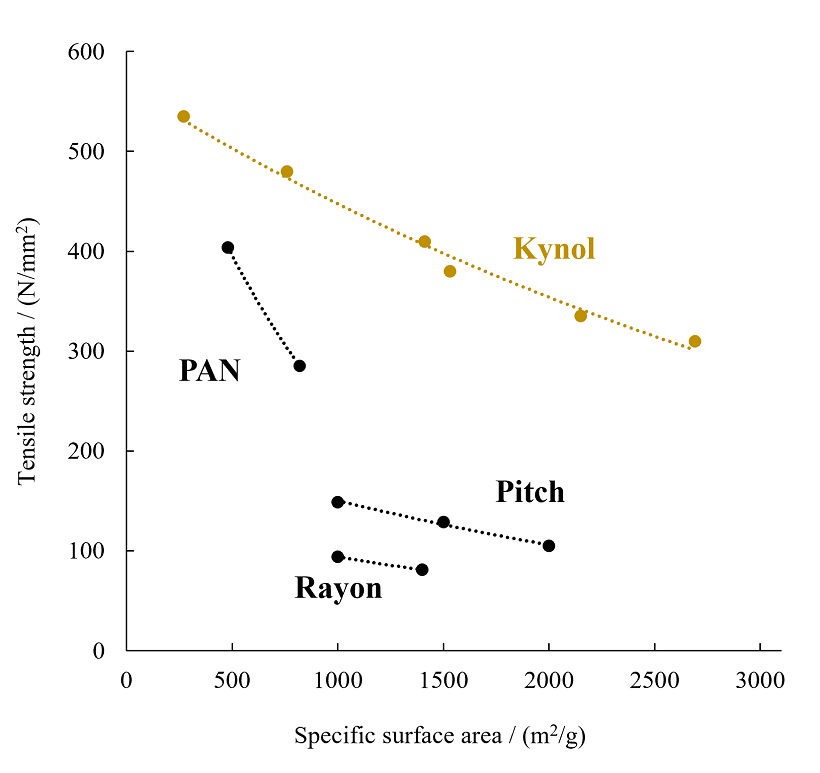
When activated into ACF, a countless number of micropores are generated which decrease fiber strength.
However, among various existing ACF, Kynol ACF has the highest fiber strength.
However, among various existing ACF, Kynol ACF has the highest fiber strength.
Activated Carbon Fiber SEM
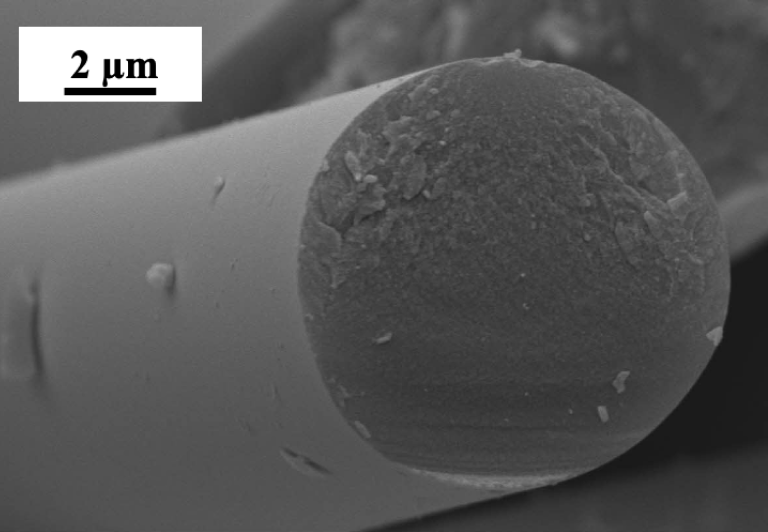
Activated Carbon Fiber, Pore distribution
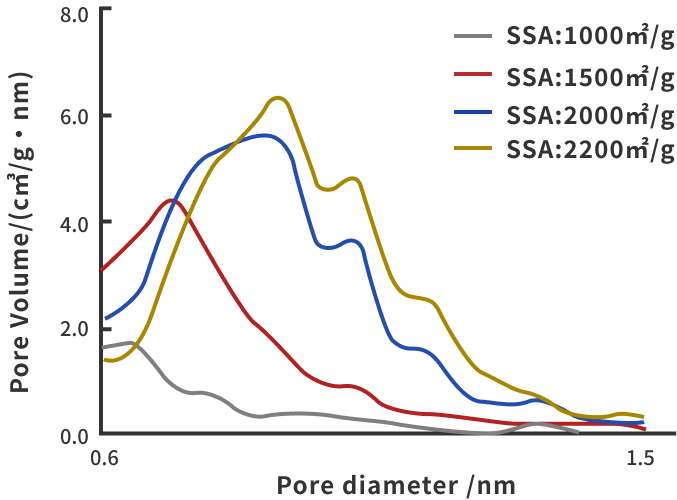
After carbonization and further steam activation, microscopic holes are made on the surface of carbon fibers to form activated carbon. The characteristic of fibrous activated carbon is that it has an ultra-high specific surface area of about 2,000~2,500 m²/g, a level that cannot be reached by ordinary materials.
Iodine Adsorption(ACF)
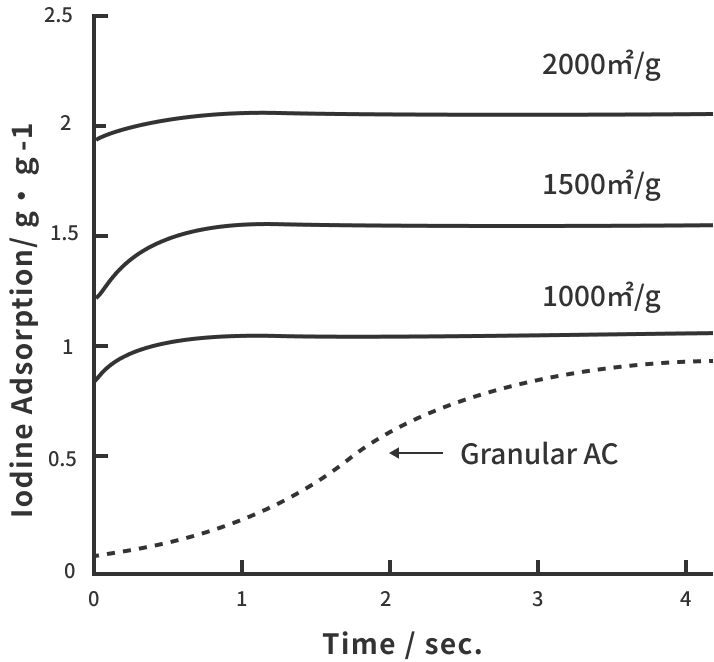
Toluen Adsorption(ACF)
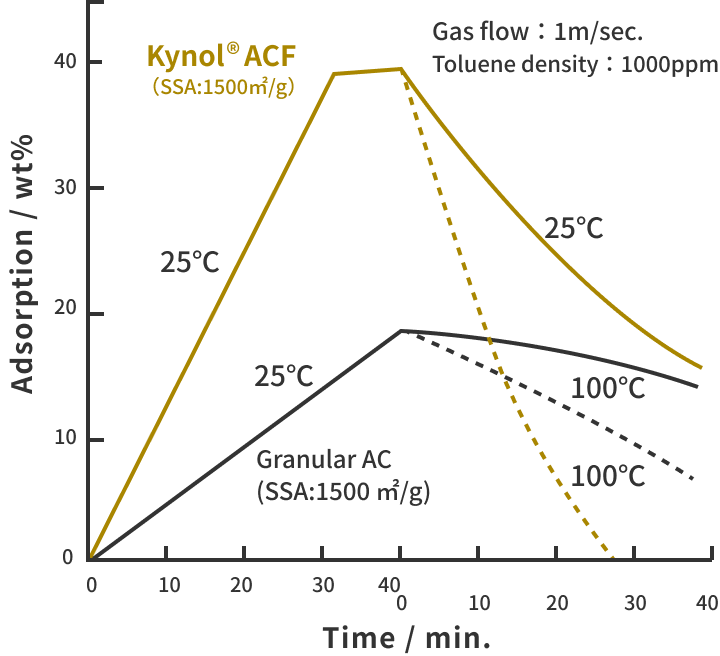
Compared to granular activated carbon, Kynol ACF has a very high adsorption rate and excellent selective adsorption properties. In addition to adsorption, the speed of desorption of adsorbed materials is also extremely fast.
